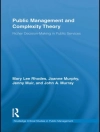The postcommunist transitions produced two very different types of states. The "contractual" state is associated with the countries of Eastern Europe, which moved toward democratic regimes, consensual relations with society, and clear boundaries between political power and economic wealth. The "predatory" state is associated with the successors to the USSR, which instead developed authoritarian regimes, coercive relations with society, and poorly defined boundaries between the political and economic realms. In Capital, Coercion, and Postcommunist States, Gerald M. Easter shows how the cumulative result of the many battles between state coercion and societal capital over taxation gave rise to these distinctive transition outcomes. Easter’s fiscal sociology of the postcommunist state highlights the interconnected paths that led from the fiscal crisis of the old regime through the revenue bargains of transitional tax regimes to the eventual reconfiguration of state-society relations. His focused comparison of Poland and Russia exemplifies postcommunism’s divergent institutional forms. The Polish case shows how conflicts over taxation influenced the emergence of a rule-of-law contractual state, social-market capitalism, and civil society. The Russian case reveals how revenue imperatives reinforced the emergence of a rule-by-law predatory state, concessions-style capitalism, and dependent society.
Gerald Easter
Capital, Coercion, and Postcommunist States [PDF ebook]
Capital, Coercion, and Postcommunist States [PDF ebook]
¡Compre este libro electrónico y obtenga 1 más GRATIS!
Idioma Inglés ● Formato PDF ● Páginas 256 ● ISBN 9780801465710 ● Editorial Cornell University Press ● Publicado 2012 ● Descargable 3 veces ● Divisa EUR ● ID 5207056 ● Protección de copia Adobe DRM
Requiere lector de ebook con capacidad DRM












